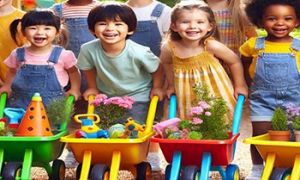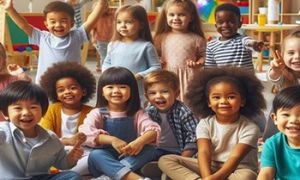Play isn’t just fun—it’s foundational. For children aged 3 to 5, games offer rich opportunities to build social skills, emotional regulation, motor coordination, and early literacy and numeracy. Whether you're refreshing your weekly program or designing a themed experience, here are some educator-approved game ideas that blend creativity, inclusion, and developmental intent.
Nature-Inspired Games
Wind & Water Explorers
Children use scarves, spray bottles, and recycled funnels to explore movement and flow. Pair with Indigenous stories about wind and water to deepen cultural connection.
Sensory Treasure Hunt
Hide natural items (leaves, feathers, stones) around the room or outdoor space. Children use clues to find them, practicing observation and teamwork.
Rainstick Rhythm Circle
Children use DIY rainsticks (made from cardboard tubes and rice) to explore sound and rhythm. Pair with stories about rain and renewal.
Leaf Matching Memory
Collect leaves of different shapes and sizes. Children match pairs and learn about biodiversity and observation.
Literacy & Language Games
Story Dice
Create dice with pictures or symbols. Children roll and build a story together, fostering imagination and narrative skills.
Reading Buddies
Children read aloud to soft toys or therapy dogs, building confidence and fluency in a non-judgmental setting.
Sound Safari
Children go on a “sound hunt” around the room, identifying objects that start with a target letter or phoneme.
Word Builders with Blocks
Use lettered blocks or tiles to build simple words. Children work in pairs to create and read aloud.
Creative & Emotional Play
Feelings Charades
Use emotion cards or facial expressions for children to act out and guess. Supports emotional literacy and empathy.
Puppet Problem-Solvers
Children use puppets to role-play common challenges (sharing, waiting turns) and brainstorm solutions together.
Emotion Sculptures
Children use playdough to sculpt faces showing different emotions. Great for discussing feelings and empathy.
Kindness Catch
Toss a softball around the circle. Whoever catches it shares one kind thing they did or saw that day.
Math & Movement Games
Shape Hopscotch
Draw shapes with chalk or tape. Children hop to the correct shape when named — blending geometry and gross motor skills.
Count & Catch
Use beanbags or soft balls. Children count aloud as they toss and catch, reinforcing number sequence and coordination.
Number Line Jump Create a number line on the floor. Children jump to the correct number when given a math clue (e.g., “What comes after 4?”).
Pattern Parade Children form movement patterns (clap, stomp, spin) and others copy or extend the sequence. Builds memory and patterning skills.
DIY & Recycled Play
Water Wall Challenge
Build a water wall using recycled bottles, funnels, and tubes. Children experiment with flow, gravity, and teamwork.
Box Town Builders
Provide cardboard boxes, tape, and markers. Children design a town, practicing spatial awareness and collaborative planning.
Bottle Cap Sorting Station
Use colored bottle caps for sorting by color, size, or number. Add tweezers for fine motor practice.
Junkyard Orchestra
Children create instruments from recycled materials (cans, lids, rubber bands) and perform together.
Tips for Educators
- Embed EYLF Outcomes: Link games to learning outcomes like identity, well-being, and communication.
- Celebrate Culture: Incorporate stories, symbols, and materials that reflect your community’s diversity.
- Document Joy: Use voice bubble cards or photo diaries to capture children’s reflections and pride.
Further Reading
20 Cultural Games For Preschoolers From Around The World
30 Indoor Group Games For Toddlers
Easy Balloon Games For Children
20 Activities To Develop Problem-Solving Skills In Preschoolers
Indoor Games For Preschoolers To Beat The Heat
Games and Activities


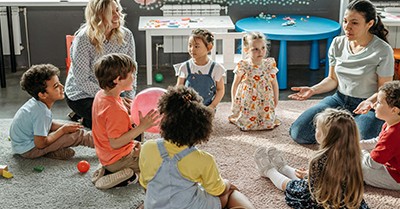
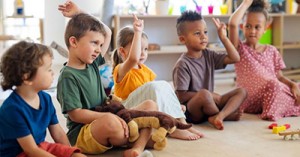
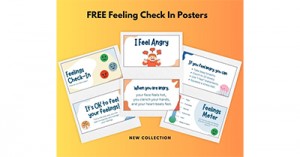
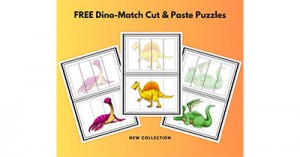
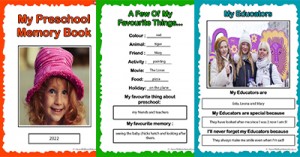
 Open ended questions cannot be responded to with one word answers such as yes or no. These types of questions enables a child to provide
Open ended questions cannot be responded to with one word answers such as yes or no. These types of questions enables a child to provide During your child’s preschool years, an important milestone begins to emerge. This is the development of pre-writing skills. Pre-writing skills are used to encourage, develop
During your child’s preschool years, an important milestone begins to emerge. This is the development of pre-writing skills. Pre-writing skills are used to encourage, develop Open ended materials enables children to play freely. They are objects that have no rules to follow, use or function. Raw materials that can be
Open ended materials enables children to play freely. They are objects that have no rules to follow, use or function. Raw materials that can be An Acknowledgment of the Country is a way of showing respect for the Traditional Owners and can be given by both non-Indigenous people and Aboriginal
An Acknowledgment of the Country is a way of showing respect for the Traditional Owners and can be given by both non-Indigenous people and Aboriginal Language plays an important role in a child’s development. It enables a child to communicate effectively with their family, learn at school, socialize with friends,
Language plays an important role in a child’s development. It enables a child to communicate effectively with their family, learn at school, socialize with friends, Like adults, children have to deal with their own stress in life. Moving house, starting a new school, preparing for a new sibling - these are
Like adults, children have to deal with their own stress in life. Moving house, starting a new school, preparing for a new sibling - these are Playdough is such a versatile material. It provides numerous benefits to children as they manipulate it, it is safe and soothing and provides children with
Playdough is such a versatile material. It provides numerous benefits to children as they manipulate it, it is safe and soothing and provides children with Teaching children about sustainability enables them to appreciate and respect the natural environment. Early childhood services can provide meaningful hand on learning experiences in order
Teaching children about sustainability enables them to appreciate and respect the natural environment. Early childhood services can provide meaningful hand on learning experiences in order Recycling is an important concept that teaches children to care for the environment. It encourages children to be responsible and show a growing appreciating for
Recycling is an important concept that teaches children to care for the environment. It encourages children to be responsible and show a growing appreciating for When children apply paint to paper, glue things together, or pound a lump of clay, they experiment with colour, shape design and texture.
When children apply paint to paper, glue things together, or pound a lump of clay, they experiment with colour, shape design and texture.

